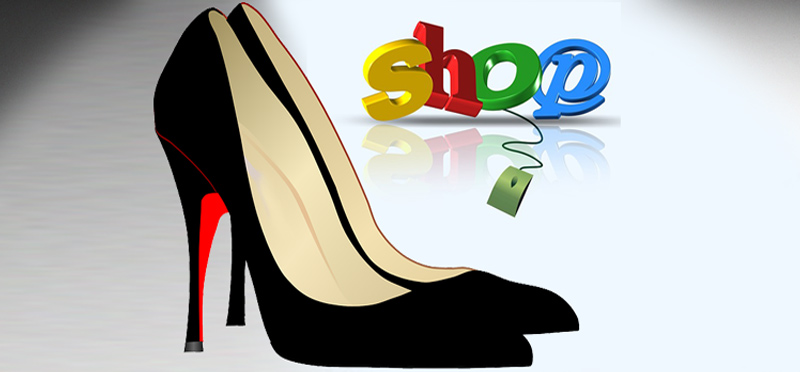Louboutin versus Amazon at ECJ: Is Amazon a 'neutral agent'?

The ECJ decided in the case Louboutin versus Amazon, a trademark dispute since 2016. Is Amazon to be regarded as a 'neutral agent' of third-party products or is Amazon responsible for trademark infringements committed by third party sellers via the Amazon platform? The ECJ ruled on this on 22 December 2022 (Joined Cases C 148/21 and C 184/21).
Louboutin: famous luxury high-heels with red sole
Since 2016, Mr. Louboutin, a French designer of world-famous luxury shoes and handbags, has registered the colour red applied to the outer sole of a high-heeled shoe as an EU trade mark. In 2018, the ECJ ruled on the legality of this EU trade mark on the red sole, applied for as a position mark (C 163/16). Van Haaren, a subsidiary of Deichmann, had argued in that litigation that the Louboutin mark was a two-dimensional figurative mark in the colour red, which corresponded to the shape of the shoes and conferred substantial value on them. Therefore, the Louboutin mark should be declared invalid.
However, the ECJ rejected this. According to the ECJ, the Louboutin trademark does not refer to a specific shape of the sole of high-heeled shoes, but the shape is intended to fix a colour to a specific part of that product. According to ECJ, this could not be considered to consist "exclusively" of the shape, only then would the sign not be protectable as a trademark.
Louboutin versus Amazon: Trademark dispute since 2016
Plaintiff Louboutin is referring to this EU trademark against Amazon, a trademark dispute since 2016. Various goods are sold via Amazon's (USA) sales platform, both directly, in Amazon's own name and on its own behalf, and indirectly, by providing a sales platform for third-party sellers. Amazon also supports third-party sellers by providing additional services such as warehousing, shipping and returns of their goods. On Amazon's websites, sales advertisements regularly appear for red-soled shoes which, according to the plaintiff Louboutin, have been put on the market without his consent. This infringed his EU trade mark.
Mr. Louboutin filed two suits against Amazon:
before the Tribunal d'arrondissement de Luxembourg and the Tribunal de l'entreprise francophone de Bruxelles (French-language company court of Brussels, Belgium).
Questions referred to the ECJ
Both courts decided to refer a number of questions to the European Court of Justice (ECJ) for a preliminary ruling. Essentially, the courts want the ECJ to clarify whether the operator of an online sales website with its own online marketplace for third-party products commits a trademark infringement if third-party sellers offer goods via this online marketplace that infringe a trademark.
This is because the online platform operators like to argue, often successfully, that they are to be regarded as mere hosting providers of websites or as neutral agents and are therefore not responsible for the infringement of third-parties' rights.
Mr. Louboutin claims that Amazon should be held responsible for trademark infringement by third-party sellers that takes place via the Amazon platform. In particular, since Amazon also provides support to third-party sellers in optimizing the presentation of their offers, Amazon cannot be regarded as a neutral intermediary.
ECJ: Is Amazon a neutral agent?
The Court pointed out that the term use is not defined in the EU Trademark Regulation. However, that term presupposes active conduct and direct or indirect control over the act constituting use. Forms of use are listed in Article 9(3) of Regulation 2017/1001, but this is not exhaustive (see, to this effect, judgment of 2 April 2020, Coty Germany, C 567/18, EU:C:2020:267, para 37 and the case-law cited therein) - and, above all, only active acts of third-parties are mentioned.
Thus, according to the ECJ, whether an operator of an online platform such as Amazon is to be held responsible for a third party's trademark infringement on its platform depends on the following factors:
How does an informed and reasonably attentive user of that website perceive the goods? Could such a user gain the impression that Amazon itself sells the - possibly trade mark infringing - goods of third-party sellers in its own name and on its own account?
Such an assumption would be supported, the ECJ added, if third-party sellers offer goods for sale on that marketplace without the consent of the owner of that trademark.
The following is also relevant, according to the ECJ:
- the fact that that operator presents the offers published on its website in a uniform manner by displaying both the advertisements for the goods sold by it in its own name and on its own account and the advertisements for the goods offered by third party sellers on that marketplace
- the fact that Amazon displays its own logo as a reputable merchant on all these ads, and
- the fact that Amazon offers additional services to third party sellers in connection with the sale of goods bearing the sign at issue for the storage and shipment of the goods.
Is trade mark protection or the defence of your earlier well-known trade mark also an issue for you? We would be happy to do your trademark application or to defend your trade mark.
The initial consultation is free of charge. Please contact us without any obligation by phone at +49 (0)69 69 59 60-0 or info@kollner.eu.







